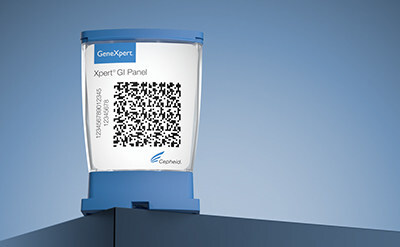Intra-Cellular Therapies recently announced that its schizophrenia treatment, lumateperone (brand name Caplyta), has met the primary endpoint in a late-stage clinical trial.
Caplyta is currently approved for the treatment of schizophrenia as well as bipolar I and bipolar II depression in adults.
The randomized Study 304 clinical trial, a “withdrawal trial,” was conducted across multiple sites with the goal of assessing the efficacy, safety and tolerability of lumateperone 42 mg for the prevention of relapse in adult patients with schizophrenia.
The study enrolled over 1,000 participants, evaluating the drug’s impact on core symptoms of schizophrenia, such as hallucinations, delusions and disorganized thinking.
The primary endpoint was an improvement in the Positive and Negative Syndrome Scale (PANSS), a widely used measure of symptom severity in schizophrenia.
On the primary endpoint, time to relapse during the double-blind treatment phase was significantly longer in patients receiving lumateperone 42 mg compared to those receiving placebo.
led to a 63 percent reduced risk of relapse compared with placebo. Among patients who received lumateperone, there were 18 relapses (16.4 percent) versus 44 relapses (38.6 percent) in the placebo group.
It also met the key secondary endpoint of better treatment discontinuation rates during the double-blind phase.
XTALKS WEBINAR: Utilizing the Measurement of Cognition to Determine Drug Safety in Late Phase Clinical Trials
Live and On-Demand: Wednesday, November 20, 2024, at 11am EST (4pm GMT/UK)
Register for this free webinar to learn how cognitive assessment plays a critical role in demonstrating central nervous system (CNS) safety in drug development.
According to the World Health Organization (WHO), schizophrenia affects about 24 million people worldwide.
The mental health disorder is characterized by persistent delusions and hallucinations, disorganized thinking and impaired functioning. It affects how a person thinks, feels and perceives reality. Schizophrenia often requires long-term treatment, including medication and supportive therapies, to manage symptoms and improve quality of life.
Schizophrenia relapse occurs when symptoms reappear after a period of partial recovery. Relapse is a common occurrence with the disorder, with up to 81.9 percent of individuals experiencing a relapse within five years of diagnosis.
Caplyta received US Food and Drug Administration (FDA) approval in 2019 for the treatment of schizophrenia.
The Study 304 withdrawal trial is part of Intra-Cellular’s post-marketing commitment to the FDA, a standard requirement for antipsychotic medications.
In the double-blind phase, patients who had achieved disease stabilization with lumateperone were randomly assigned to either continue the drug or switch to a placebo for a period of up to 26 weeks.
Notably, the drug exhibited a favorable safety profile, with fewer adverse events than typically observed with other antipsychotic medications.
In a statement, Suresh Durgam, MD, chief medical officer of Intra-Cellular said the trial data “support the continued long-term treatment with lumateperone.”
Related: Cobenfy Approved as First-in-Class Treatment for Schizophrenia
Lumateperone is also being developed as an adjunctive treatment for major depressive disorder (MDD), and Intra-Cellular plans to submit a marketing application in the indication during the fourth quarter of this year.
Currently approved drugs for schizophrenia include Vanda Pharmaceuticals’ Fanapt (iloperidone), AbbVie’s Vraylar (cariprazine) and Bristol Myers Squibb’s Cobenfy (xanomeline and trospium chloride). Cobenfy was approved in September as the first new class of drug for schizophrenia in over four decades.
According to Fierce Pharma, in a conference call last week, Intra-Cellular’s chief commercial officer Mark Neumann shared that Caplyta sales rose by 39 percent year over year to $175 million in the third quarter, surpassing analyst expectations, driven by its approvals for schizophrenia and bipolar depression. He said the growth significantly outpaced the four percent increase seen across the entire branded antipsychotic market.
Intra-Cellular also has plans to expand Caplyta into the treatment of MDD. Following two successful Phase III trials, Study 501 and Study 502, the company is gearing up to seek FDA approval for the drug as an adjunctive treatment for MDD later this year.
It is estimated that over 30 million adults in the US have either bipolar depression or MDD, representing a significant market for Intra-Cellular to get a slice in.
An approval for Caplyta as an adjunctive treatment for MDD would increase its share of antipsychotic prescriptions for these conditions from nearly 50 percent to almost 80 percent, said Neumann.
To strengthen Caplyta’s clinical profile in MDD, Intra-Cellular is conducting Study 503 to assess its long-term safety. Recently, the company also updated eligibility criteria for Study 505 to gather additional data on patients with inadequate responses to multiple antidepressants, aiming to expand evidence of Caplyta’s efficacy across diverse patient groups.
If you want your company to be featured on Xtalks.com, please email [email protected].












Join or login to leave a comment
JOIN LOGIN